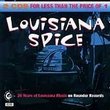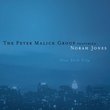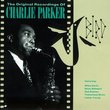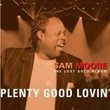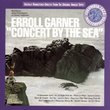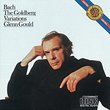| All Artists: Erik Satie, Friedrich Cerha, Louis de Froment, Ensemble Die Reihe, Elaine Bonazzi, Luxembourg Radio Orchestra, Frank Glazer, Richard Deas Title: The Music Of Satie: Orchestra, Piano, Voice Members Wishing: 0 Total Copies: 0 Label: Vox (Classical) Release Date: 8/22/1994 Genres: Dance & Electronic, Pop, Classical Styles: Vocal Pop, Opera & Classical Vocal, Ballets & Dances, Ballets, Chamber Music, Forms & Genres, Theatrical, Incidental & Program Music, Instruments, Strings Number of Discs: 2 SwapaCD Credits: 2 UPC: 047163510724 |
Search - Erik Satie, Friedrich Cerha, Louis de Froment :: The Music Of Satie: Orchestra, Piano, Voice
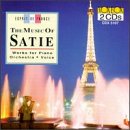 | Erik Satie, Friedrich Cerha, Louis de Froment The Music Of Satie: Orchestra, Piano, Voice Genres: Dance & Electronic, Pop, Classical
|
Larger Image |
CD DetailsSimilarly Requested CDs
|
CD ReviewsA Laughably Cheap Way to Experience Satie Christopher Forbes | Brooklyn,, NY | 01/07/2003 (5 out of 5 stars) "If you ever wanted to expose yourself to the music of Erik Satie but were not sure where to start, this is your disc. If you are turned off by all of the Satie albums marketed as "the world's most relaxing music" this is also your disc. If you've always thought of Satie as a hack of meagre talent who hid his lack of ability under a facade of cool surrealistic irony, this is your disc. For just over ten dollars, this disc shows Satie in all of his range, from pop cabaret song composer, to artist of exquisite sensibility. At this price, you should lap this one right up. Most of these recordings are reissues of earlier Vox material from the 70's. I have most of the originals in either tape or LP form, but cannot review absolutely everything on the CD, due to holes in my collection. But what I do know from this series is terrific. The vocal music covers most of Satie's most important music in this form. Je Te Veux and Tendrement are both cabaret pieces, and as such they are revealing of Satie's melodic gifts, gifts not readily apparent in his other work. Both are luxurious 19th century salon pieces in the best sense of the word, well crafted and graceful for the voice. Some of the later songs, including the brilliantly surreal Luditions are exactly what you would expect Satie to write, quirky and yet with something deeper underneath. The duo piano music is largely unknown to me, with the exception of the Three Morceaux in the Form of a Pair. This piece is very similar to other Satie solo piano works, charming, and seemingly lightweight, but with some disquieting undertones hidden under a childlike exterior. However the real reason to get this CD is for the orchestral and dramatic works. Parade is a classic of it's kind, the first ballet about nothing to be produced. Concieved by Cocteau, with set and costume design by Picasso and choreography by Massine (i think)the work was a success du scandale in Paris. Musically, Satie's orchestrations are clever and very well balanced and his music is somewhere between minimally brilliant and banal. The banality is an essential part of the work however, so I don't mean this as a criticism. Relache may have been Satie's most revolutionary work. It is the antithesis of the omnipresent Gymnopodies. This is almost a harsh work, though not in the sense of harsh dissonance. It is devised around a very limited series of ideas and repeats those ideas in subtly varied ways throughout it's length. As such, the work predates minimalism by about 50 years. Satie was often sited by Cage as a major influence. It's easy to believe that this is the work that was most influential on him. I do know the other works on this album as well, but the real masterpiece is Satie's Socrate. Socrate reveals a side of Satie that is not usually evident, his serious and very spiritual side. Socrate is a "dramatic" scene for orchestra and voice, setting three sections of the dialogues of Plato. Satie is completely serious in these works, composing a flowing, austere vocal line that sets the Socratic dialogues in relief in all their stark beauty. Rather than manipulate the emotion, Satie aims for an almost antique atmosphere, with subtly moving instrumental lines and modal melodies. The work is less dramatic than hypnotic and as such Socrates' death at the end of the third scene is deeply moving. Until I had heard this work (recommended to me by my composition teacher in college) I had no idea that Satie could be such a powerful composer. Socrate is years ahead of it's time, exerting a powerful influence on Cage (who's Cheap Imitation I is an aleatoric reworking of the material of this piece), Lamonte Young, Glass and latterly Arvo Part. This work alone is worth the price of the CD. Add to that the chance to hear excellent renditions of Relache and Parade and the CD is self-recommending. Anyone interested in the roots of modern music would do well to own this CD."
|

 Track Listings (34) - Disc #1
Track Listings (34) - Disc #1